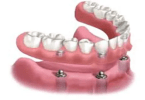
What To Consider When Changing Your Diet
People are increasingly aware that what they eat affects both physical and emotional health. As a result, they are looking for changes that will have the most impact. However, it is essential to keep a few things in mind when checking out new diets to have the best results.
Safety
There are so many fad diets that safety is almost a secondary thought when you adopt one. That is a huge mistake. Drastic changes to your diet can have far-reaching consequences for your health. Before jumping in, take time to see how others feel when trying out a new diet. For example, many reviews mention that Thrive side effects are minimal compared to other programs.
Your Nutritional Needs
Your body needs a specific mix of macro- and micro-nutrients, which should be one of the first things you look at when switching up your diet. Will the new program meet your nutritional needs? If not, are you willing to supplement to get what you need, or is that unrealistic?
A good rule of thumb is that any diet that asks you to remove an entire food group altogether will not be very balanced. The MyPlate website is an excellent source of information about what nutrients you need and how to get them through your diet. However, if you have questions, it might be a good idea to consult with a nutrition coach or dietitian for advice specific to your needs.
Support Systems
This is a feature that helps make some diets more successful than others. When you have a support system in place — whether a workout buddy, support group, or wellness coach — you are more likely to stick with your plan and reach your goals. Weight Watchers pioneered this method years ago, and peer support is now carried in a wide range of programs through apps, social media, and in-person meetings.
What Types of Foods You Like To Eat
Try to avoid diets or eating plans that limit your favorite foods. There’s a pretty good chance you won’t stick to them long-term, plus you’ll probably be miserable while you do adhere to the program. On top of that, any diet that villainizes food can contribute to disordered eating behaviors.
Program Sustainability
This has come up quite a bit already, but it warrants mentioning again. A program that you can stick with is preferable to one you will only follow for a few weeks. Part of that reason is that it can take months for new habits to form, so you haven’t really caused any long-term change. It would be best to consider that your body won’t miraculously change overnight in response to a new diet. It can take months before you notice significant changes. That is actually good, since losing more than two pounds a week can be dangerous for your health.
Sustainable diets tend to meet nutritional goals and fit into your lifestyle. The Mediterranean and DASH diets are two of the most touted examples. They both use lots of whole food ingredients that are readily accessible to most people. Pescatarian and flexitarian eating plans are also highly rated for sustainability.
Your Daily Schedule
How your diet fits into the rest of your life is a big deal. For example, someone who has a variable schedule might struggle with meal prepping but absolutely love healthy ready-to-cook meal kits as an alternative. Or, if your plan calls for a full breakfast of eggs, bacon and avocado toast every day and you are already struggling to get out of the door in time, it probably isn’t a good fit. Be realistic about what you are willing to do to accommodate a new diet.
The Cost
This may not be something that people want to talk about, but a diet program with a very high cost puts it way out of reach of many people. Look for diets that won’t stretch your food budget beyond its limits.
Be sure to consider everything from cost to convenience when choosing a new diet. It is also helpful to remember that even small changes to your diet can have a big impact on your health.






